Show Notes:90. Chase Replogle — Top Books of 2019
I think you of the challenges of reading is deciding what to read next. It sounds simple, but a book is both an investment of time and money. Pew Research has found the median average American has read four books in the past 12 months. Four chances to find a meaningful and hopefully perspective-changing read.
Some previous reporting by Publishers weekly estimates that the Evangelical Christian Publishers Association publishers release around 7,500 new books each year. That isn’t counting the thousands of self-published titles or books still in print from previous years.
Over the past years, I’ve had the privilege of interviewing several Christian authors and developing relationships with publicists who represent authors and their new titles. I do my best to keep up with what’s being published, but its an impossible task. Most American will pick four books from the tens of thousands of possibilities. Thankfully the end of the year brings lists of the years most influential books.
I’d recommend taking a look at these lists—several of the authors listed have been past Pastor Writer podcast guests.
Christianity Today’s 2020 Book Awards
The Gospel Coalition 2019 Book Awards
Most of the lists published this month look back at books that were published in 2019. My list is slightly different. I want to offer you the most impactful books I have read in 2019. Some have been recently published, and some are much older, but these are the books that have shaped and guided much of my thinking this past year.
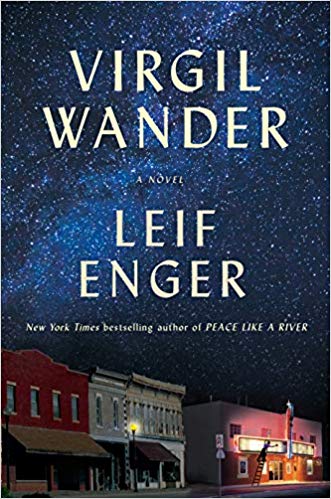 1. Virgil Wander: Lief Enger
1. Virgil Wander: Lief Enger
This past year our family took a road trip to visit family. We made the decision to leave very early in the morning, allowing our young kids to sleep while we knocked out some hours of driving. My wife and I each took one of our AirPods, and I hit play on Leif Enger’s newest novel, Virgil Wander.
The book is not labeled under Christian fiction, I have no information about Enger’s faith, but the book quickly became my favorite novel of the year. Set in a small lakefront Minnesota town. The plot is thin, but the characters are rich and fascinating. Books like this one are a reminder that people, even forgotten ones in forgotten towns, are eternally fascinating.
Novels like this one are a training ground for paying attention. With patience, the plots of everyday life take on deeper meaning and become sacred. The book’s end left me wishing for a few more pages and a few more hours in Enger’s fictional town.
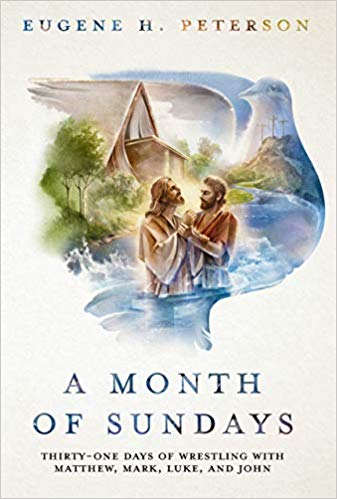 2. A Month of Sundays: Eugene Peterson
2. A Month of Sundays: Eugene Peterson
Though it has now been over a year since the death of one of my favorite authors, Eugene Peterson, 2019, did bring more of his words. This past November, Waterbrook released a short 31-day devotional of Peterson’s sermons through the gospels. The sermons are broken down into a few pages each day.
For me, reading them is an incredible gift, like the discovery of your favorite band’s unreleased tracks. I read the book in its 31-day plan and found it, as always, deep, insightful, patient, and wise. It was my favorite devotional experience this year.
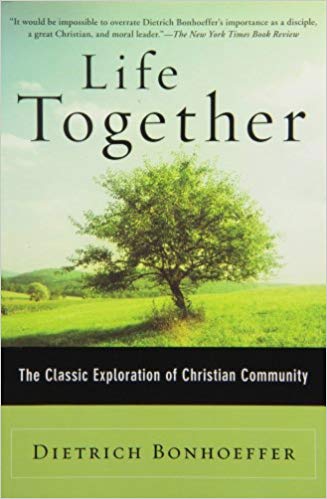 3. Life Together: Dietrich Bonhoeffer
3. Life Together: Dietrich Bonhoeffer
Life Together was published in 1939. It’s not a new release, and this wasn’t the first time I had read it, but so much of my writing and preaching was shaped by this book this year.
In 2019, I had the privilege of contributing an article to Christianity Today for the first time. The article explored my first encounter with Life Together and the profound impact it had on how I understand my vocation as a pastor. Life Together explores Bonhoeffer’s lessons and thoughts while teaching at an underground seminary in Nazi-controlled Germany.
I am routinely struck by the insights and modern application of Bonhoeffer’s lessons. So much of what he feared and warned about has played out in the way we work and worship together as a church. Life Together should be read by every pastor and probably every Christian. It should be read carefully and patiently. Bonhoeffer was prophetic in so many ways; Life Together only adds to that legacy.
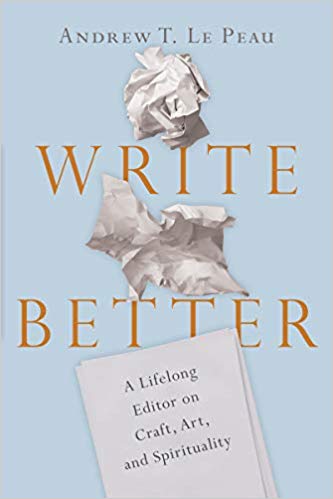 4. Write Better: Andrew LePeau
4. Write Better: Andrew LePeau
Write Better is my recommendation for a craft book on writing. Most of the great writing books I’ve read over the past few years have not been written from a Christian perspective. A significant amount of advice on writing applies to anyone writing, regardless of faith or even in my opinion, fiction or non-fiction. But one of the questions I’m continually interested in exploring is how Christian faith impacts the craft of writing.
LePeau offers plenty of practical advice on writing, but he also leans into that larger question, what he calls the Spirituality of Writing. LePau brings decades of experience in writing and editing, having served as the associate publisher for editorial at InterVarsity Press.
Write Better is a book I’m planning on rereading in 2020, and I’m hoping to get LePeau on the podcast sometime early next year.
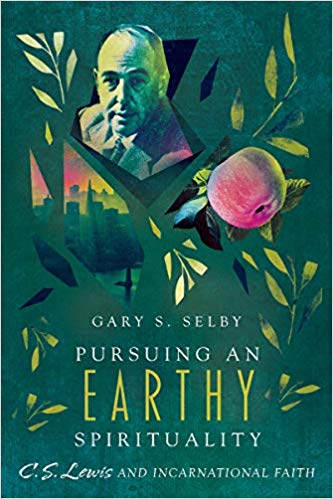 5. Pursuing an Earthy Spirituality: Gary Selby
5. Pursuing an Earthy Spirituality: Gary Selby
When I saw the release of Gary Selby’s book on the theology of C. S. Lewis, I knew I wanted to read it but also wanted to talk with Selby about Lewis as a writer. It was an honor to host him on the podcast this last year. It’s worth checking out the episode.
My wife and I love to watch documentaries on artists. I often find that a little background on an artist dramatically changes the way I see their work. Sometimes it even helps me appreciate an artist I might not otherwise have overlooked.
C. S. Lewis is a writer I have long enjoyed reading, in fact, my son and I have been working through the Chronicles of Narnia this year. But reading Selby’s book on Lewis only deepened my appreciation. It will make you appreciate Lewis even more and inspire you to pick up even more of his books.
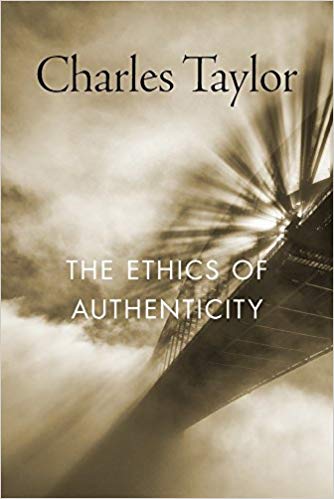 6. The Ethics of Authenticity: Charles Taylor
6. The Ethics of Authenticity: Charles Taylor
I big part of 2019 was shaped by the writings of Charles Taylor, and I have come to recognize how many other authors have been impacted as well. The influence of Taylor is massive, but his major works—like, A Secular Age—are a major project for most readers, myself included. I tackled it in audio format this year and found it fascinating and challenging.
I also read Taylor’s much shorter, The Ethics of Authenticity. The book looks at the growing cultural focus on authenticity and self-fulfillment, replacing traditional values such as community and social commitments. The book still takes a careful reading, but evidence of Taylor’s ideas will be immediately evident after reading.
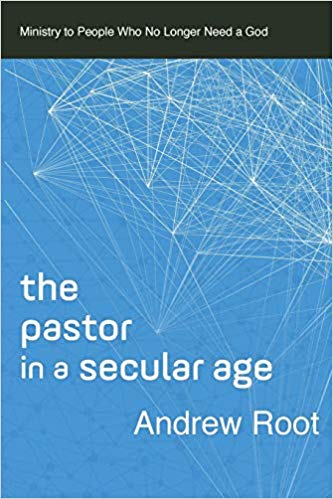 7. The Pastor in A Secular Age: Andrew Root
7. The Pastor in A Secular Age: Andrew Root
Root’s book is one that contributed to my focus on Charles Taylor. Root works through much of Taylor’s thoughts and tracks how these cultural changes have impacted pastors.
The book includes a fascinating history looking at the historically influential “celebrity” pastors and how they model the shifting understanding of what a pastor is and does.
Root joined me to talk about his book on an episode of the podcast, and it quickly became one of the most listened to episodes. The book might be a little too detailed for a general audience, but for pastors, it is well worth taking the time to read and process Root’s contribution.
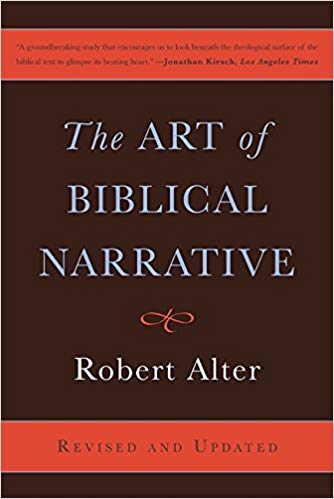 8. The Art of Biblical Narrative: Robert Alter
8. The Art of Biblical Narrative: Robert Alter
I’m not sure why it took me this long to find The Art of Biblical Narrative. I’ve long been interested in the narrative techniques of the Biblical authors. Preaching through the Old Testament has routinely left me amazed at how well written the biblical stories are.
Alter deepened my appreciation even more. Alter shows how the craft of the Hebrew writers rivals the great literature of history. He helps his readers appreciate what is unique about Hebrew narrative and offers the tools to appreciate these techniques better as you read.
I think Alter’s books should be required reading for anyone teaching scripture and would be well worth the time of any Christian.
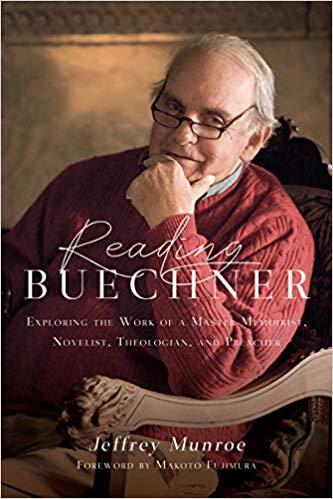 9. Reading Buechner: Jeffery Munroe
9. Reading Buechner: Jeffery Munroe
After reading Jeffery Munroes’ book on the life and writings of Fredrick Buechner, there will probably be several Buecherner books on my 2020 reading list.
I first read Buechner’s, Telling the Truth in seminary, but have yet to dig into his memoirs or his fiction. I think I’ve waited too long. Muroe’s book offers an introduction to Buechner’s life and work. It’s the perfect introduction to pique your interest and give you the foundation for reading more on your own.
I often go through seasons of reading, where I focus a significant amount of my energy into reading a single author. It’s too early to tell, but it feels like Buechner might be my next author. Munroe deserves a big part of the credit.
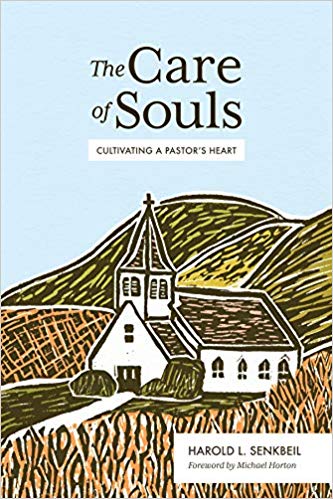 10. Care of Souls: Harold Senkbiel
10. Care of Souls: Harold Senkbiel
There is no book I’ v recommended more this year than the Care of Souls. Senkbiel offers a wise and discerning take on the core work of being a pastor. He describes the pastoral identity as a * habitus*, a Latin word which sees a pastor as a kind of disposition or a way of being. It’s a refreshing idea in a world that models most of its advice to pastors around functions and business tactics. It should be required reading for every pastor.
I had the chance to interview Harold on the pastor writer podcast, and its one of the most important conversations I think I’ve had on the show. I really can’t recommend the book highly enough.
Well, that’s my list. One of the things I have come to love about this podcast is discovering new books from listeners. If there has been a book that has made a big impact on you in 2019, I’d love to hear about it.
You can leave a comment on facebook, twitter, or comment on this episode at pastorwriter.com.
I also want to take a moment to say thank you. In January, this show will hit its two year anniversary. It has become a big part of my weekly routine and it has paid for itself in so many new friendships and conversations. It’s all possible because you take the time to listen, to share the show, and to leave feedback.
They now say there are over 800,000 podcasts online. I know I’m only able to listen to a small handful. So I know what a gift it is to have your support, and I promise to steward it to my best attention.
I often will ask guests to close out episodes in prayer; I wonder if you might let me do it this week… to pray for you and for the coming year?






































